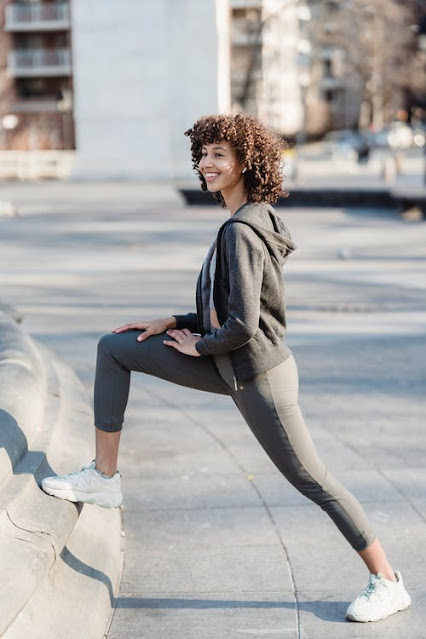Crafted By: Aysha Sodha (Certified Dietitian Nutritionist)
PRE-WORKOUT AND POST-WORKOUT NUTRITION UNVEILED
Are you acquainted with the optimal pre and post-workout sustenance?
Whether you’re a novice in the realms of running, training, or swimming, or an adept practitioner of physical exertion, recognizing the pivotal role of proper nutrition is paramount. It serves as the trigger for improved performance, faster healing, and a lessened sensitivity to accidents.
However, understanding the maze of food choices can be overwhelming. The absence of clarity on the best pre and post-workout dietary selections might lead one to indulge haphazardly upon returning home. This succinct guide to sports nutrition endeavors to demystify the quandaries surrounding meal choices, offering insights tailored to diverse nutritional needs and training objectives. Let’s delve into the intricacies of optimal nourishment throughout the day. Time to elevate your game!
 |
| What to eat before and after workout? |
PRE-WORKOUT FUEL
Enhancing Movement Through Strategic Consumption
If you’re an early-morning enthusiast, a light pre-jog snack is imperative. Given your body’s fasting state overnight, a modest intake is essential to kickstart your engine without inducing the heaviness of a full meal. The key is attunement to your body; tailor your approach based on your exercise intensity. Never let hunger undermine your physical prowess and disrupt your workout flow.
Choosing wisely before and after your workout involves prioritizing carbohydrates. Unlike Popeye’s reliance on spinach for strength, your athletic performance hinges on a carbohydrate-rich diet. Rapid digestion and efficient energy provision make fruits, vegetables, dairy, and grains top contenders. Consider the following elite sources of carbohydrates:
- Banana
- Berries: raspberries, blueberries, strawberries, or blackberries
- Brown rice
- Dried fruits
- Fruit and nut granola bar
- Sweet potato
- Low-fat yogurt
- Whole grain pasta
- Whole grain bread
- Oatmeal
Sufficient Hydration – A Non-Negotiable
Intriguingly, poor water can weaken performance, showing in cramps, headaches, and dizziness. Consistent drinking, stretching beyond the workout time, enables blood circulation, energy transport, and temperature control. Waiting for thirst as a signal is discouraged; it’s a precursor to dehydration. During exercise, periodic sips of water, adjusted based on climate and activity duration, are recommended.
For workouts lasting 60 minutes or less, water suffices. Beyond that, incorporating beverages with carbohydrates and a hint of salt replenishes energy and offsets losses. Commercial sports drinks, laden with sugar, can be replaced with healthier homemade alternatives, ensuring no more than 8g of carbohydrates per 100ml.
Strategic Timing for Optimal Performance
A judiciously timed pre-workout snack or meal is pivotal for sustained energy without discomfort. The farther from the workout, the more balanced and comprehensive the meal. Conversely, as the workout approaches, opt for lighter, carbohydrate-rich snacks.
Consider these temporal guidelines:
- 3 to 4 hours before: A balanced meal
- 2 to 3 hours before: Carbohydrate-rich, low-lipid, and protein meal
- 1 to 2 hours before: A snack with carbs and minimal protein
- Less than an hour before: One or two carbohydrate-rich foods
POST-WORKOUT RECOVERY
Strategic Nutrition for Optimal Recovery
Post-exercise, eating a mix of carbs and protein within 30 minutes is key. This expedites energy recovery, muscle tissue repair, and rehydration. Even for weight loss goals, a post-workout meal or snack fortifies recovery without undermining efforts.
Optimal recovery snack ideas:
- A cup of cereal with a cup of milk
- An apple with cheese cubes
- Pita bread with hummus
- Greek fruit yogurt
- Vegetable drink with a homemade muffin
- A cup of chocolate milk
- Decadent sports recovery cake
- Backpacker’s mix with dried fruit and almonds
For those favoring a complete meal, consider comforting recipes:
- Grilled salmon
- Cottage cheese and chocolate pancakes
- Chicken and vegetable stir-fry
- Grilled tofu stir-fry with edamame and vermicelli
- Chicken skewer with whole grain rice and cooked broccoli
- Quinoa salad
- Turkey, brie, apple, and cucumber bagel
THE FIVE PILLARS OF SPORTS NUTRITION
- 1. More Water: A vital drink for temperature control, nutrition intake, and trash removal.
- 2. More Carbohydrates: The primary energy source for muscles and the brain.
- 3. More Fiber: Essential for cholesterol control, satiety, and effective weight management.
- 4. No More Meals: Optimal energy distribution across five small meals daily.
- 5. More Balance: Inclusive of all food groups for comprehensive nutrient provision.
Embrace the combination of a busy lifestyle and a healthy diet. Knowledge of food choices is important for prolonged energy and good health. Remember, success lies in the art of balance, so allow yourself occasional indulgences.
